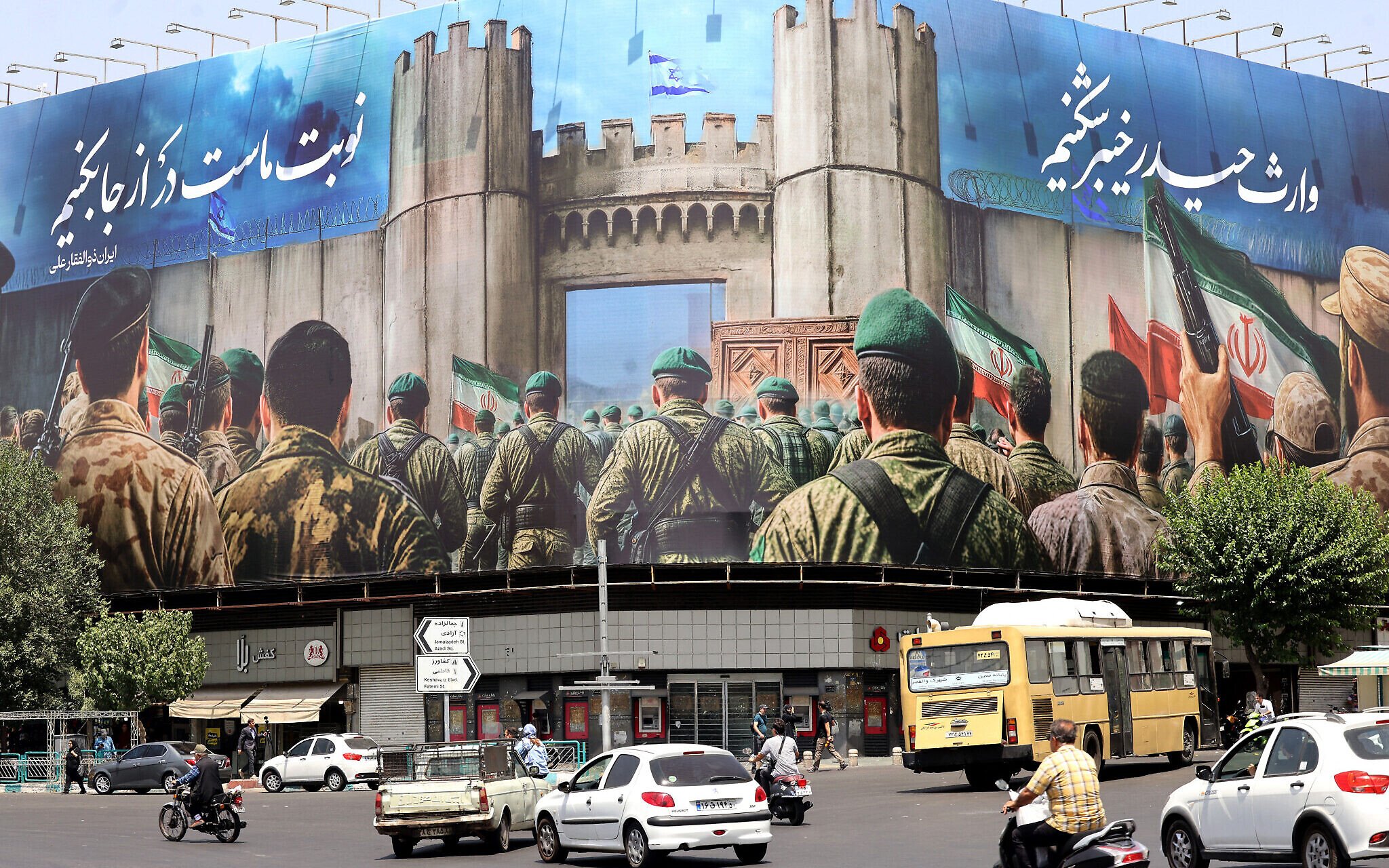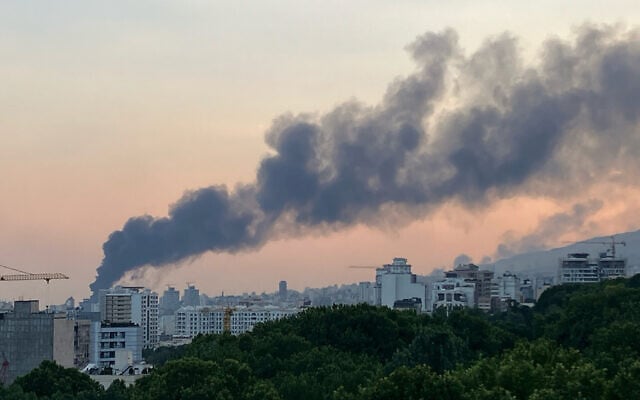



DUBAI, United Arab Emirates — Iranian police arrested as many as 21,000 “suspects” during the country’s 12-day war with Israel in June, a law enforcement spokesperson said on Tuesday, according to state media.
Following Israeli airstrikes that began on June 13, Iranian security forces began a campaign of widespread arrests accompanied by an intensified street presence based around checkpoints and “public reports” whereby citizens were called upon to report on any individuals they thought were acting suspiciously.
“There was a 41 percent increase in calls by the public, which led to the arrest of 21,000 suspects during the 12-day war,” police spokesperson Saeid Montazerolmahdi said. He did not say what those arrested were suspected of, but Tehran has spoken before of people passing on information that may have helped direct the Israeli attacks.
The Israel-Iran conflict has also led to an accelerated rate of deportations for Afghan migrants believed to be illegally in Iran, with aid agencies reporting that local authorities had also accused some Afghan nationals of spying for Israel.
“Law enforcement rounded up 2,774 illegal migrants and discovered 30 special security cases by examining their phones. Two hundred and sixty-one suspects of espionage and 172 people accused of unauthorised filming were also arrested,” the spokesperson added.
Montazerolmahdi did not specify how many of those arrested had since been released.
He added that Iran’s police handled more than 5,700 cases of cyber crimes such as online fraud and unauthorised withdrawals during the war, which he said had turned “cyberspace into an important battlefront.”
Israel said its sweeping assault on Iran’s top military leaders, nuclear scientists, uranium enrichment sites, and ballistic missile program was necessary to prevent the Islamic Republic from realizing its avowed plan to destroy the Jewish state.
Iran has consistently denied seeking to acquire nuclear weapons. However, it enriched uranium to levels that have no peaceful application, obstructed international inspectors from checking its nuclear facilities, and expanded its ballistic missile capabilities. Israel said Iran had recently taken steps toward weaponization.
Iran retaliated to Israel’s strikes by launching over 500 ballistic missiles and around 1,100 drones at Israel.
The attacks killed 31 people and wounded over 3,000 in Israel, according to health officials and hospitals.
In all, there were 36 missile impacts and one drone strike in populated areas, causing damage to 2,305 homes in 240 buildings, along with two universities and a hospital, and leaving over 13,000 Israelis displaced.

